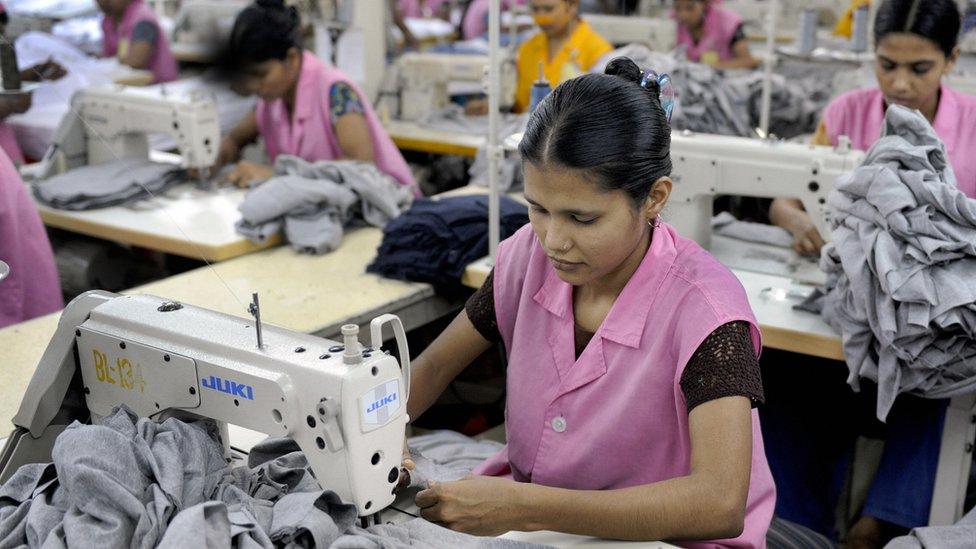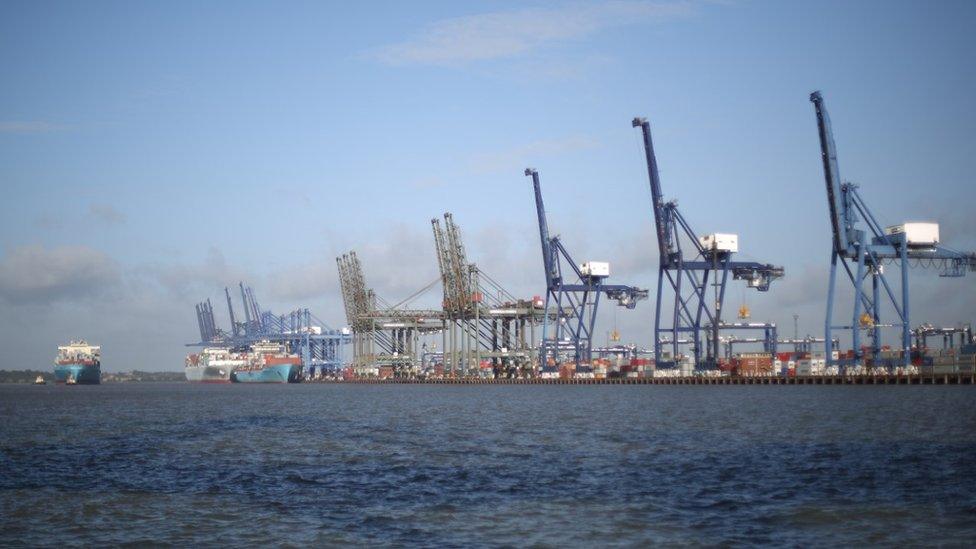Free trade deals for 'poorest countries' to be maintained post-Brexit
- Published

Free trade deals with developing countries will continue post-Brexit, the government has said.
The UK will maintain an EU deal, which provides 48 countries with duty-free access to Britain for imports.
It means British firms do not pay import tariffs on goods bought from countries such as Bangladesh and Haiti.
International Trade Secretary Liam Fox said Brexit gave the country an opportunity "to step up our commitments to the rest of the world".
He added: "Free and fair trade has been the greatest liberator of the world's poor, and today's announcement shows our commitment to helping developing countries grow their economies and reduce poverty through trade."
The deal excludes arms and ammunitions.
The list of countries - which also includes Ethiopia, Sierra Leone, and Uganda - is based on the UN's Least Developed Countries index., external
Currently £19.2bn of goods are imported from the 48 countries, including 79% of the tea consumed in Britain.
Some 45% of the UK's textile and clothing imports, and 22% of its coffee, also come from the developing nations.
International Development Secretary Priti Patel said the renewed commitment would "help the world's poorest people stand on their own two feet".
She added: "Building a more prosperous world and supporting our own long-term economic security is firmly in all our interests."
The government also intends to explore options to expand relationships with richer countries like Jamaica, Pakistan and Ghana, which currently enjoy a mixture of reduced tariffs or zero tariffs.
Dr Fox added it would result "in lower prices and greater choice for consumers".
- Published15 June 2017
- Published29 March 2017
